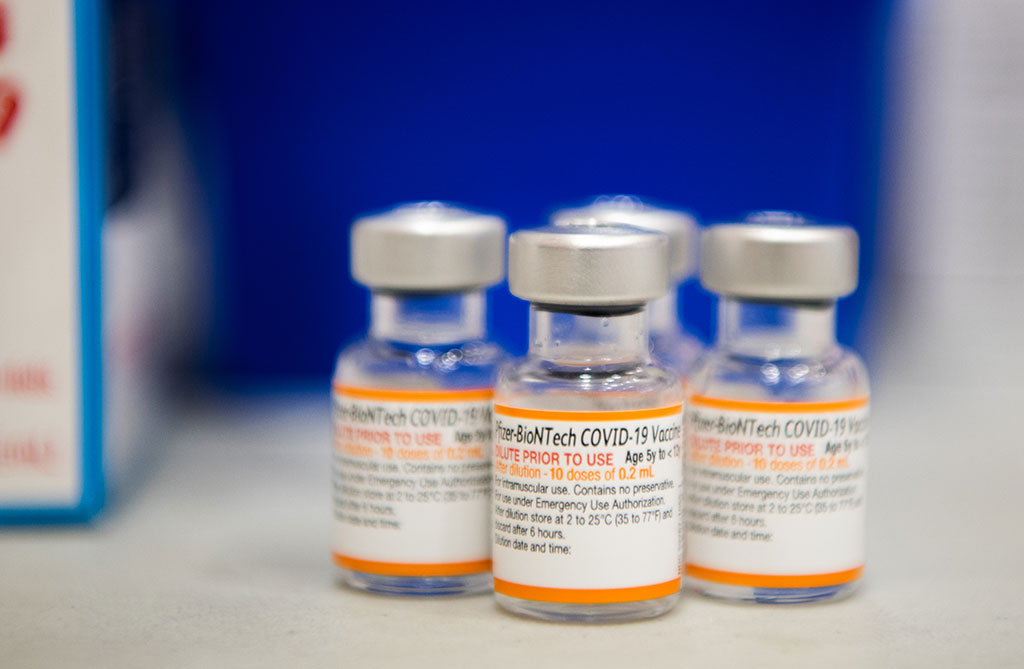
HHS Abandons mRNA Vaccines, Experts Warn of Threats to U.S. Health Security
How did your country report this? Share your view in the comments.
Diverging Reports Breakdown
HHS Abandons mRNA Vaccines, Experts Warn of Threats to U.S. Health Security
The U.S. Department of Health and Human Services announced the cancellation of hundreds of millions of dollars in federal investment in mRNA vaccine development. The decision comes just as global public health experts warn of accelerating threats from zoonotic pathogens like highly pathogenic avian influenza (H5N1) For many scientists, the withdrawal of federal support is not simply a policy redirection, it represents a profound weakening of U.s. health security at a time when agility, speed, and innovation are most needed. For public health professionals, policymakers, and global security stakeholders, the choice raises a fundamental question: in the face of accelerating biological risks, will the U.N. invest in speed, adapt, and science? For the American public, this decision carries direct consequences for health security. For the world, it signals to the world that the U.,S. is deprioritizing cutting-edge health security, writes Dr. Michael Osterholm.
Earlier this month, the U.S. Department of Health and Human Services (HHS) announced the cancellation of hundreds of millions of dollars in federal investment in mRNA vaccine development. Health Secretary Robert F. Kennedy Jr. defended the move by citing an extensive list of studies said to show the risks of mRNA platforms, though many of the cited works were either disputed or promoted by long-time critics of mainstream public health interventions.
The decision comes just as global public health experts warn of accelerating threats from zoonotic pathogens like highly pathogenic avian influenza (H5N1). For many scientists, the withdrawal of federal support is not simply a policy redirection—it represents a profound weakening of U.S. health security at a time when agility, speed, and innovation are most needed.
mRNA Technology: Promise and Precedent
mRNA vaccines were central in the fight against COVID-19, proving that new vaccines could be developed and deployed within months rather than years. This platform’s speed and adaptability are unmatched by traditional egg-based methods, which remain vulnerable to agricultural shocks and supply chain disruptions.
Dr. Michael Osterholm, a leading epidemiologist at the University of Minnesota, has called the decision “the most dangerous public health decision I have ever seen made by a government body” in his 50 years in the field. He and others emphasize that while mRNA vaccines are not perfect, they remain the best available tool for rapidly addressing emerging respiratory pathogens such as influenza and coronaviruses.
Politics, Trust, and the Narrative
HHS officials have framed the move as a necessary pivot, citing both biological uncertainties and declining public trust in the mRNA platform. NIH Director Jay Bhattacharya argued in The Washington Post that the public’s skepticism toward mRNA vaccines—exacerbated by mandates and communication missteps—makes them unsustainable as a broad public health tool.
While mistrust is real, critics argue that abandoning the platform altogether misdiagnoses the problem. Instead of improving transparency and risk communication, the government is discarding a proven tool of pandemic response.
National Security and Public Health Implications
For the American public, this decision carries direct consequences for health security. By dismantling investment in flexible platforms like mRNA, the United States risks losing the ability to respond quickly to fast-moving outbreaks. The country remains heavily reliant on egg-based vaccine production—a system already under strain from H5N1 outbreaks that have led to mass poultry culls, jeopardizing both food and vaccine supply.
From a national interest perspective, this weakens the U.S. position in global biosecurity. Pandemic preparedness is not only about domestic protection but also about sustaining international leadership in outbreak response. Retreating from mRNA research reduces America’s capacity to lead multilateral initiatives, undermines scientific credibility, and increases vulnerability to both natural and engineered biological threats.
A Narrowing Window
The U.S. is at an inflection point. Avian influenza continues to spread across farms, livestock, and even into human populations. Each lost month of preparation raises the stakes. Federal defunding of mRNA vaccines at this moment does not simply represent a scientific gamble; it signals to the world that the U.S. is deprioritizing cutting-edge health security.
Experts caution that reversing course will be difficult, as disrupted research pipelines cannot be restarted overnight. Yet many still argue it is not too late for policymakers to restore support for next-generation platforms that offer resilience against inevitable future pandemics.
A Nation Made Vulnerable
The HHS decision to walk away from mRNA vaccines is unprecedented in modern public health policy. At best, it is a politically motivated gamble on unproven alternatives; at worst, it is a retreat that leaves the U.S. and the world more exposed to pandemic threats. For public health professionals, policymakers, and global security stakeholders, the choice raises a fundamental question: in the face of accelerating biological risks, will the U.S. invest in speed, adaptability, and science—or retreat into vulnerability?
Sources and Further Reading
Source: https://globalbiodefense.com/2025/08/30/hhs-abandons-mrna-vaccines-health-security-risks/
